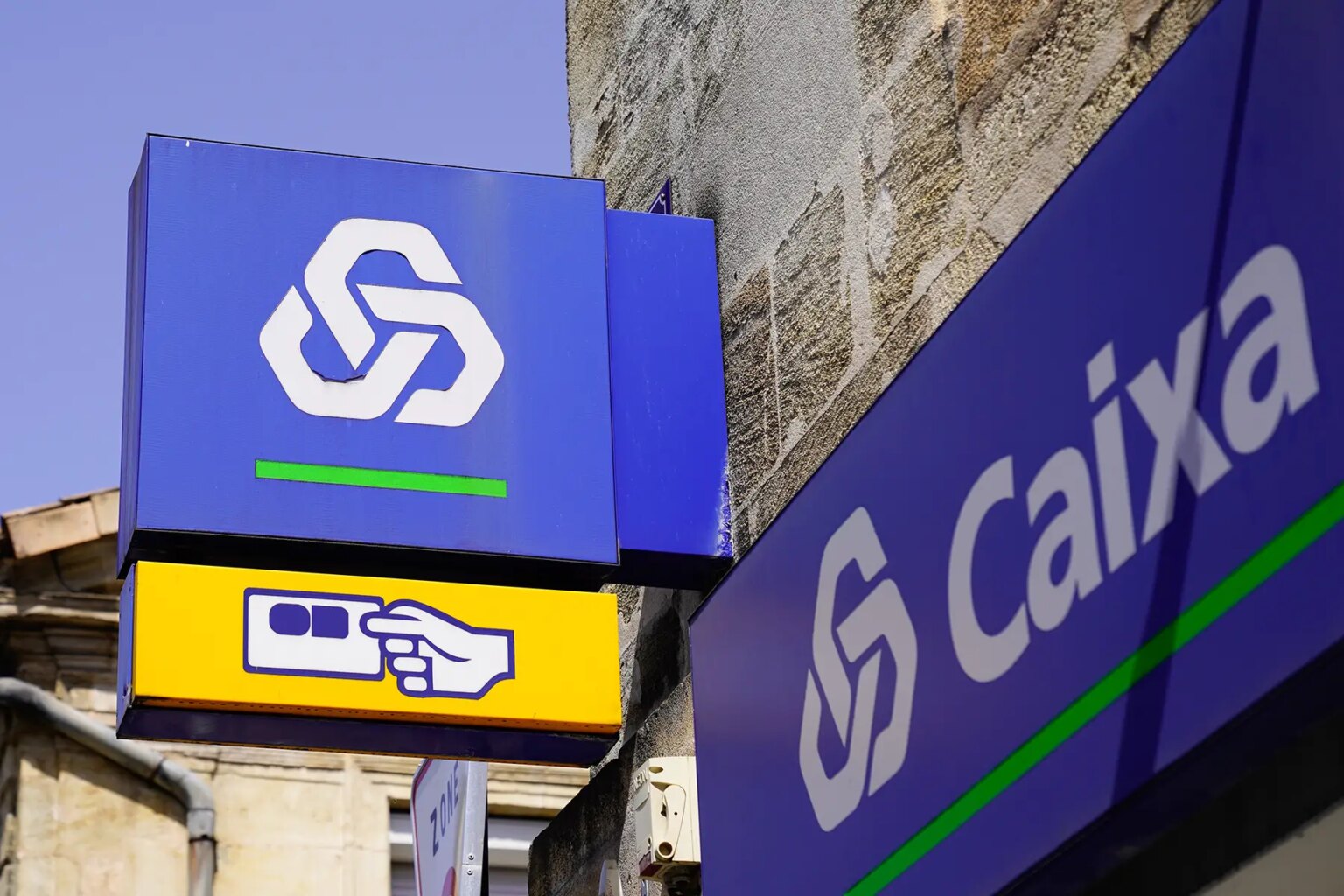Portugal has an advanced banking system, with its main banks linked up to its national Multibanco system, enabling customers to perform a range of actions from their accounts. Expats can open an account with a Portuguese bank with relative ease, and accounts with banks in Portugal can be opened by both residents and non-residents.
This guide will look at:
- The banking system in Portugal
- Currency in Portugal
- Banks in Portugal
- Banking services in Portugal
- Opening a Portuguese bank account
- Payment methods in Portugal
- Bank charges and fees in Portugal
- Offshore banking in Portugal
- Banking security and fraud in Portugal
- Making a complaint about banks in Portugal
- Alternatives to using banks in Portugal
- Useful resources
N26
N26 is the bank you'll love to use: open your bank account in just eight minutes without paperwork. Take control of your finances with one app where you can manage limits, set PIN, lock/unlock cards, and make no-fee transactions anywhere in the world.
The banking system in Portugal
Portugal has a modern banking system that includes one of the most advanced interbank networks in the world through Multibanco. There are currently over 150 banks in Portugal. This includes a range of private national retail banks, public and cooperative banks, international banks, and newer mobile banks.
Although the number of physical bank branches in Portugal has been on the decline over the last decade, there are still around 32.8 branches per 100,000 of the population. That’s nearly three times the global average.
The majority of banks in Portugal belong to the Portuguese Banking Association. The central bank in Portugal is the Banco de Portugal, which also serves as the regulatory authority for Portuguese banks.
Currency in Portugal
Portugal is a eurozone country that uses the euro (€). There are eight different euro coins in use (1, 2, 5, 10, 20, and 50 cents, as well as €1 and €2) and seven different notes (€5, €10, €20, €50, €100, €200 and €500). Some smaller stores might not accept notes above €50 or €100, however.

Cash machines and ATMs in Portugal
Portugal’s sophisticated Multibanco network, which involves several of the major national banks, operates a nationwide system of around 11,000 ATMs. You certainly won’t have a problem locating one in any of the larger cities; however, they are more scarce in villages and rural areas.
Multibanco machines take all of the major bank cards such as Visa and Mastercard. Most machines have a limit of €200 per transaction or €400 per day. Foreign bank transaction fees are around 2–3%; however, some international banks (such as Barclays and Deutsche Bank) are part of the Global ATM Alliance, where ATM fees are waived.
You can find the nearest ATM in Portugal using locator services for Mastercard, Visa, and American Express.
Banks in Portugal
National private retail banks in Portugal
Portugal has many private high street banks that offer a range of current accounts. Some offer student accounts, non-resident accounts, as well as joint accounts. Larger banks in more populated cities will often have English-speaking staff.
Banks in Portugal are linked to the Multibanco ATM system where you can withdraw money, pay bills, top-up a Portuguese mobile phone, transfer money to other accounts, as well as paying income tax and social security contributions.
Standard banking hours in Portugal are 08:30 to 15:00; some locations are also open until 16:00. Some banks also open for a few hours on Saturdays, too.
A number of major private retail banks operate in Portugal, such as:
- Banco Best
- BancoBIC
- Banco BPI
- Millennium BCP
- Novobanco
- Santander Totta
Public retail banks in Portugal
Caixa Geral de Depositos is a state-owned banking corporation. This is Portugal’s second-largest bank.
International banks in Portugal
There are a number of multinational banks in Portugal that you can find in larger urban areas. These banks have comparable opening hours to their Portuguese counterparts. Often, they offer a range of expat-friendly services. Some international banks in Portugal are:
- Abanca
- Barclays
- BBVA
- BNP Paribas
- Citibank
- Credit Agricole
- Deutsche Bank
Digital banks in Portugal
A number of online and mobile banks have emerged in recent years, allowing customers to open an account and bank using their mobile phones or laptops. Digital banks suitable for Portuguese residents include:

Investment banks in Portugal
- Banco Carregosa
- BiG (Banco de Investimento Global)
- Banco Finantia
- Banco Invest
Banking services in Portugal
Most banks in Portugal offer a variety of services to individuals and businesses, including:
- Current accounts: standard everyday accounts are available. These include tailored accounts for students or youth, as well as premium accounts with a wider range of credit card options.
- Loans and overdrafts: accounts are available with an overdraft option. Most banks offer personal loans for purchases such as holidays, home improvements, or unforeseen expenses.
- Mortgages: fixed and variable rate mortgages in Portugal can be taken out through the lending facilities of most Portuguese banks.
- Savings and investments: these can range from high-interest savings and time deposit accounts to investment funds and Portuguese pension plans.
- Insurance: insurance products include home insurance, car insurance, life insurance, and Portuguese health insurance.
- Digital and online banking: all of the main banks in Portugal offer online banking, including 24/7 access to your account.
- Mobile banking: for even greater convenience, you can download a Portuguese mobile banking app and bank using your mobile phone. There is also the option of opening an account with a mobile-only bank.
- Business banking: most of these services are also available for businesses, too. This is great news if you’re starting a business in Portugal.
- Expat services: you can shop around with banks in Portugal to find the best services tailored towards expats and foreign residents.
Opening a Portuguese bank account
Unless you’re opening up a non-resident account from overseas, you’ll have to open up your Portuguese bank account in-person at a local branch. Some banks now have an option of opening up an account online, although this is usually more associated with digital and mobile banks.
Opening a bank account in Portugal is usually fairly straightforward if you have the necessary documentation. This is likely to include:
- Passport or valid identification
- Proof of address such as a recent Portuguese utility bill
- Portuguese NIF
One way to get an NIF and Portuguese bank account is by using an online service such as Anchorless.io, Bordr, or e-residence. They allow you to apply online, streamlining the procedure.
Payment methods in Portugal
Cash payments
Cash is still a popular method of payment in Portugal. The country is part of the eurozone; as a result, it uses the euro as its currency. All of the main Portuguese banks are part of the Multibanco service, which links up cash machines across the country. That means you don’t have to worry about bank charges if you use a Portuguese bank card at an ATM.
There is a maximum limit of €3,000 for cash transactions in Portugal.
Checks
Payment by check is not very popular with Portuguese customers. If you’re looking to order checkbooks, they’ll have to be ordered separately with bank accounts in Portugal for a small fee.
Keep in mind that bounced checks can cause major problems in Portugal. It is a criminal offense to issue a check if you don’t have the funds to cover it; if caught, you can be charged with fraud. Penalties can include fines of around 20% of the check amount and even blacklisting by the central bank.
Debit cards
In Portugal 79% of people report having access to a payment card, below the EU average. Debit cards are widely used throughout the country. The Multibanco card, used by around 86% of the Portuguese population, can be used as a credit or debit card.
Most Portuguese debit cards use the chip-and-PIN technology. Contactless cards, however, haven’t caught on in the country as quickly as in other European countries. Banks in Portugal offer a range of different debit cards depending on the type of account opened. They can be used for online and store payments as well as for withdrawing money at ATMs. The majority of Portuguese stores take them.
Credit cards
Credit cards are not as popular as debit cards in Portugal, although most banks offer them. You’ll usually need to apply for one when or after you open an account. As with debit cards, there are a number of credit cards available. It’s a good idea to research the perks and associated fees for different products before signing up for anything.
You can use the main international credit cards such as Visa, Mastercard, and American Express in Portuguese stores or with online businesses. To apply for a Portuguese credit card, you generally need to have good credit. Cards usually have a spending limit and bills need to be paid off periodically.
Direct debits
There are fewer direct debits as a percentage of cashless payments in Portugal than the EU average; this is perhaps due to many people paying bills using Multibanco. However, there were still over 25 million direct debit transactions in Portugal in 2018.
You can set up direct debits through most bank accounts in Portugal to pay regular or monthly bills. They can also be used for one-off payments. Provide the company to which you make the payments with your bank details and they will set up for you.
You can cancel a direct debit in Portugal at any time. However, you’ll need to inform the company the direct debit is charged to. It’s possible to request a refund on a direct debit if you weren’t informed of the amount at the time the payment was made and it exceeds the amount you could reasonably be expected to pay. You need to apply for a refund within eight weeks of the date the payment was made.
Multibanco payments
The Multibanco system was set up in Portugal in 1985 as an interbank network linking Portuguese banks through a network that has grown to over 12,000 ATMs. Through Multibanco, customers can perform a wide range of functions at ATMs in Portugal including paying monthly bills, topping up mobile phones, buying tickets, making bank transfers, as well as paying tax or social security contributions. Nowadays, more than 90 different operations can be accessed through the Multibanco brand.
Online and mobile payments
Online payments are growing by around 21% a year and mobile payments in Portugal by 35%. Debit and credit cards can be used for online payments, while mobile payments using mobile phones and smart devices can be done using banking apps, payment apps such as Apple Pay and Google Pay, or digital wallets such as PayPal.

Local money transfers
Money transfers within the eurozone can be done by Single Euro Payments Area (SEPA) transfer. These cost no more than a transfer between two Portuguese bank accounts, as long as the amount is under €50,000. You’ll need the International Bank Account Number (IBAN) and SWIFTBIC (Bank Identifier Code) for the bank that is receiving payment.
Local transfers between two Portuguese accounts can usually be completed on the same day if done early in the day. SEPA transfers usually take 1–2 days.
International money transfers
Transfers to or from outside the EU/EEA are subject to fees applied by Portuguese banks. You’ll need to check with your Portuguese bank what the charge rates are to and from different countries.
There are no limits on sums of money traveling in and out of Portugal. However, anything above €50,000 needs to be declared to the Banco de Portugal. Transfers can take around 3–5 working days.
For international money transfers, there are alternative solutions to banks that could prove cheaper and more convenient, such as:
Consult our guide to international money transfers for more information.
Bank charges and fees in Portugal
Banking in Portugal is slightly more expensive than in other countries. Most bank accounts in Portugal charge a monthly service fee. This varies from bank to bank but is generally around €5–7 a month plus stamp duty. Some accounts such as student accounts are usually exempt from these fees.
In addition, there are the usual charges on services such as overdrafts and credit cards. Credit card charges depend on your bank, account, card type, and how much you spend. They’ll usually be between €15–50 a year; some premium cards charge more.
Costs for loans and mortgages with Portuguese banks depend on the Annual Percentage Rate (APR). There may also be additional service or administration charges. The APR payments on a €5,000 loan payable over a five-year period with some of the main Portuguese banks are:
- Millennium BCP: 10.0%
- Caixa Geral de Depositos: 10.8%
- Novobanco; 10.2%
You can find credit simulators on the websites for most of the main Portuguese banks.
International money transfer costs are usually less than €15 for amounts of less than €50,000. Transferring larger amounts can be €30 or more.
You can ask for a full list of charges from the bank when you open a bank account in Portugal. Information may also be available on the bank’s website.
Offshore banking in Portugal
Expats living in Portugal may find that opening an international offshore account is the best way to manage their finances. Having an offshore account is particularly helpful for anyone who works abroad, spends a lot of time in more than one country, or frequently transfers money between countries.
Offshore bank accounts are located outside the holder’s country of residence and usually offer distinct advantages such as a wider range of cross-border services and lower taxation on funds.
Banking security and fraud in Portugal
Portugal experiences a lower level of banking fraud than the EU average. Fraudulent activity accounts for around 0.02% of all credit card transactions, according to 2016 figures. However, it’s still important to do what you can to protect yourself, whether you use mobile, online, or conventional banking.
You can help to protect yourself against fraud by taking a number of steps, such as:
- Never clicking on a link to a bank website in an e-mail. Always type the bank’s full website into the address bar.
- Don’t give sensitive or confidential information out by e-mail or over the phone.
- Making online payments only using a secure payment platform.
- Never entering your PIN number anywhere on a website.
- Never storing personal data on your mobile device.
Lost or stolen bank cards in Portugal
If your bank or credit card is lost or stolen in Portugal, you should:
- Contact your bank or card provider immediately. If your card is a Multibanco card, you can call +351 21416 9314.
- Report the incident to the police if your card has been stolen.
Refer to our guide to emergency numbers in Portugal for more information on what to do in emergency situations.
Making a complaint about banks in Portugal
If you are dissatisfied with the service provided to you by a bank in Portugal, you should firstly contact the bank’s complaint department. If you’re unable to resolve the problem through the bank directly, you can contact the Banco de Portugal, which regulates banking in Portugal.
Alternatives to using banks in Portugal
If you don’t want to, or can’t, bank with a high-street bank, another option is to open an account with a regional cooperative bank. Credito Agricola, for example, operates 86 cooperative banks with over 700 branches across the country.
Cooperative banks have over 700,000 members in Portugal. Many offer similar services to retail banks, including current accounts, credit cards, loans, and mortgages.
To open a cooperative account with Credito Agricola, you need to provide a Portuguese citizen card. If you don’t have this, you’ll need a passport or valid identification, a Portuguese address, and a NIF number. You may also need to give proof of your economic status (e.g., employment, student, pensioner).
Useful resources
- Banco de Portugal: central bank and Portuguese regulating authority
- Multibanco: Portuguese inter-banking network
- Portuguese Banking Association: main representative body for banks in Portugal




